Colossal Cave Review
Recreating a piece of video game history isn't easy
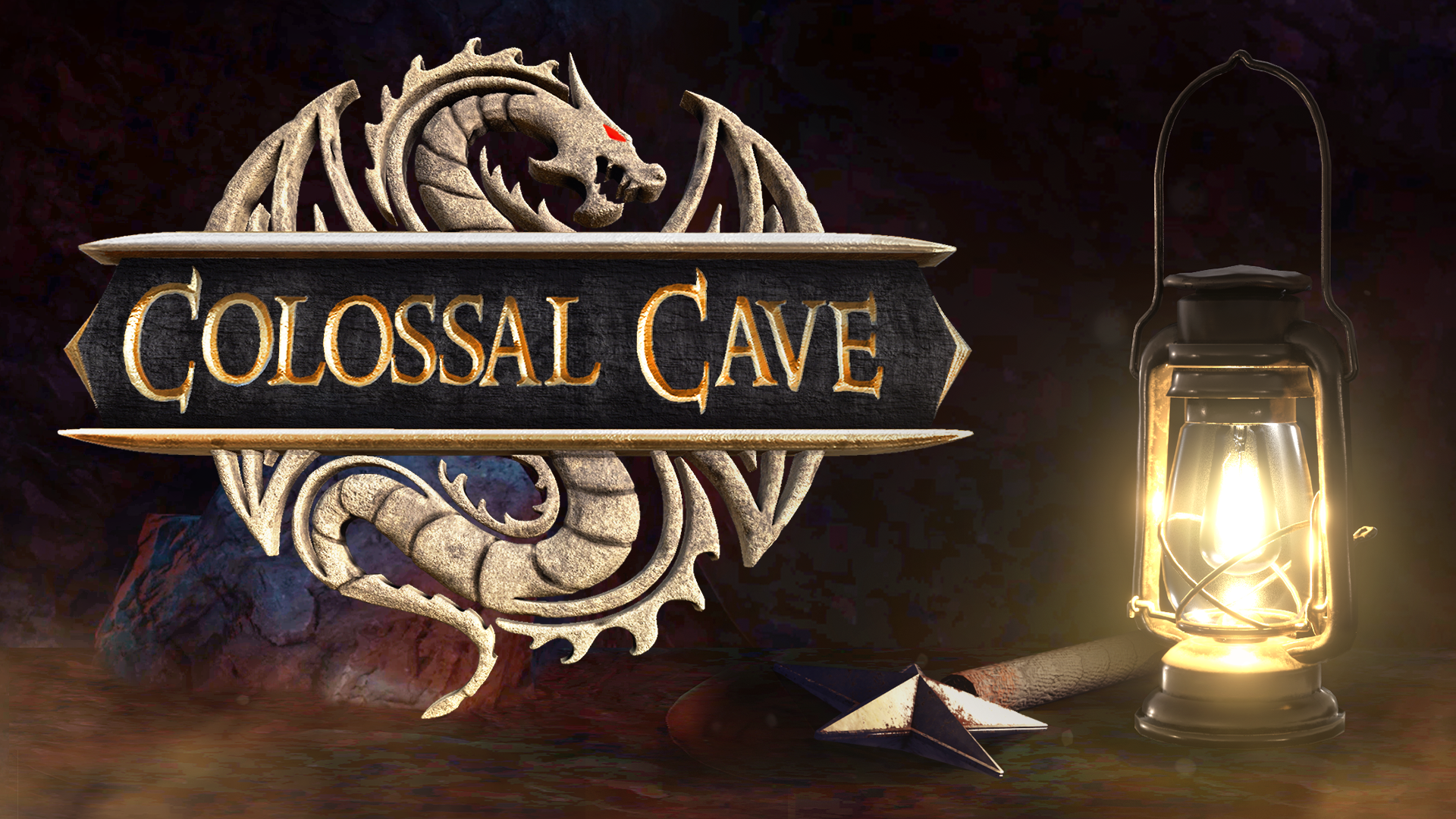
Video games are old. They’re always seen as the young upstart in the world of entertainment, but that young upstart is middle-aged now. Last year, Atari turned 50, and they threw a big party to celebrate (by party, I mean an excellent compilation game/retrospective). And they’re not 50 in the same way that Nintendo is 133 years old or Sega is 62 - they didn’t start with playing cards or coin-operated machines, they started with video games. The young, brash game and console designers interviewed in Atari 50 are now in their seventies. What I’m getting at here, is that video games are old enough that some of the pioneers of the industry and their games are largely forgotten, especially if they haven’t stayed in the public eye.
Roberta and Ken Williams are good examples of this. It’s hard to overstate the influence this couple has had on the games industry. To call Roberta Williams the godmother of adventure games isn’t hyperbole. Their company, Sierra On-Line, was one of the biggest names in PC games in the 80s. Roberta’s King’s Quest series was the leader in graphical point-and-click adventures until Lucasarts took things a step further in the 90s. Sierra Online imploded rather dramatically when CUC International, a huge conglomerate, bought them out for $1 billion in stock. It was an offer too good to be true, so they took it. The reason CUC could offer so much was that they were greatly overestimating their income and eventually were caught in what is one of the biggest accounting scandals ever. Ken and Roberta left Sierra in 1997 and 1999 respectively, jumping ship before the whole thing sank. They left the games industry and settled into semi-retirement. They’re rightly considered part of the game developer Pantheon but could potentially walk through the PAX floor unnoticed.
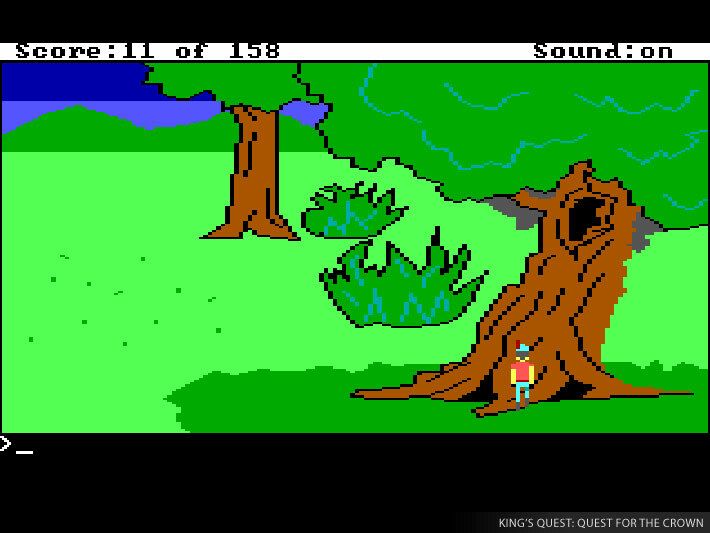
Will Crowther is not a household name, he’s really more of a trivia question. ‘Who created the first text adventure game?’ to be more precise. Programmer and spelunking enthusiast Crowther designed the original version of Colossal Cave Adventure (also known as just Adventure), which was the first popular adventure game and piece of interactive fiction.
Notice I didn’t say video game, because to begin with, Colossal Cave Adventure was programmed in 1975 on a PDP-10 mainframe computer, and you played the game by using a teletype because monitors weren’t standard yet. To play the game, you would type your command and the text would print out as you went. So, it wasn’t a video game per se. Eventually, Don Woods (also not a big name) made some important additions, and other savvy programmers would port it to newer computers with monitors. Neither of these men stuck with games, preferring to stay with computer programming, but their work was an important early step toward the world of video games we know today.

Roberta and Ken Williams’ video game journey started with a teletype edition of Colossal Cave. It inspired her to make her own adventure games. Williams’ first game, 1980’s Mystery House for the Apple II, is credited as being the first graphical adventure game. Now, 25 years after Roberta’s final game for Sierra, King’s Quest: Mask of Eternity, the Williams’ (aged 68/69) have come out of game dev retirement and gone back to their roots by remaking the 48-year-old ground zero for adventure games.
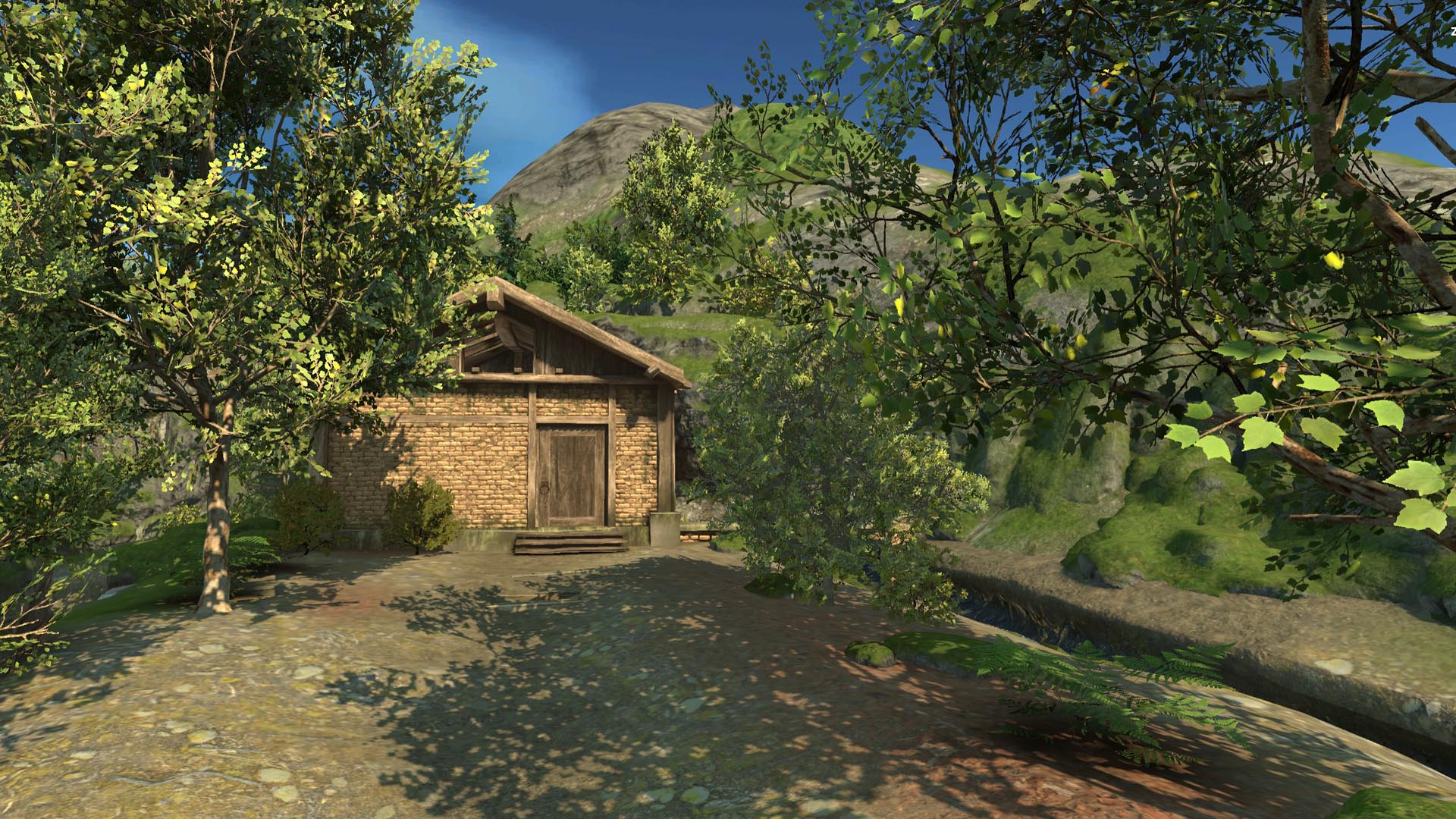
That is a very brief history behind the game I am reviewing here. It’s hard not to look at the new 3D version of Colossal Cave without that context. In fact, I would say you absolutely need the context, because, without it, you're playing a new indie first-person adventure game that is not particularly good.
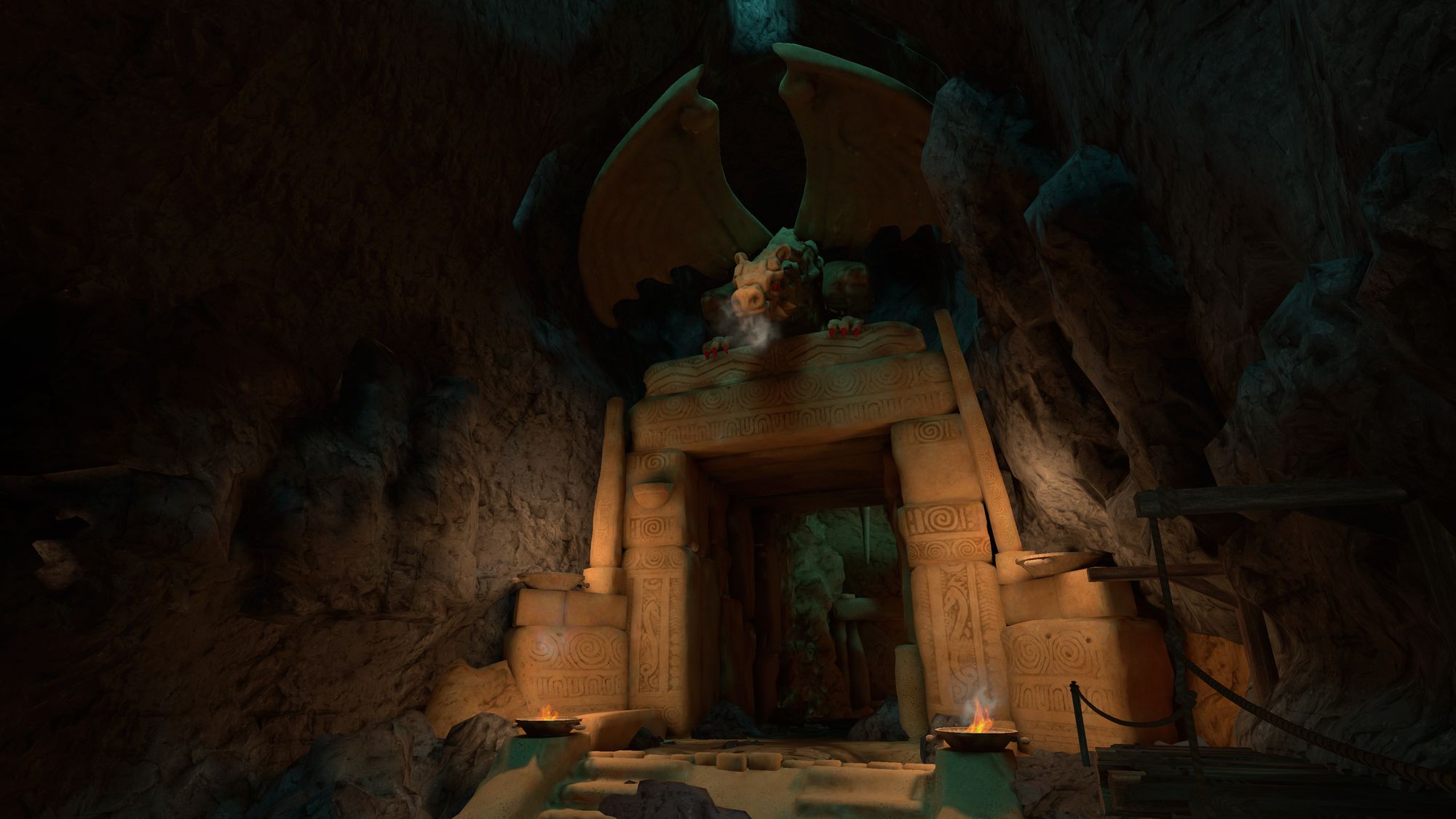
You see, in one way, Colossal Cave succeeds in what it sets out to do – offer a more accessible way to play an old game that helped shape the medium. It’s certainly easier for players to get into than a text parser adventure. While I know those games are still kicking around today and there’s some good and innovative stuff coming from that scene, they can be hard to understand at first if you’re more attuned to modern games. You can play the 2023 Colossal Cave and go ‘look, you can pick up items and put them in your inventory, this game popularised that,’ like you’re going through a museum exhibit. The narration in the game is spoken like the text in the original, giving it that text adventure feel. It works if you look at it as a new version of a historical text.
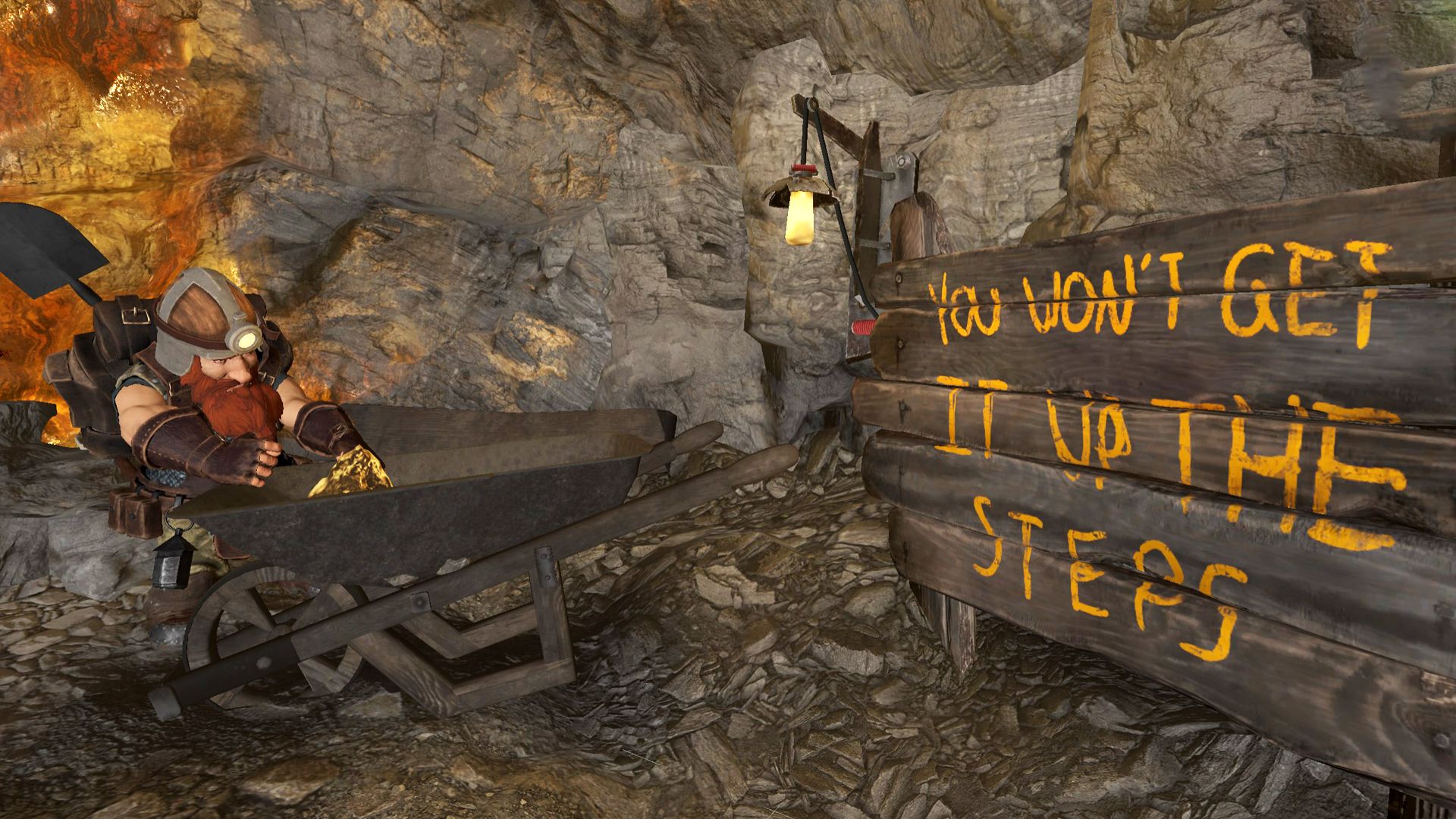
If you look at it without that lens, you get a rather plain and sometimes frustrating adventure game that could perhaps get a pass if it was very nice to look at – which it absolutely is not. The game takes place in a variety of winding caves, where sometimes you're encountering puzzles that stand between you and one of the 16 pieces of treasure you’re searching for. Sometimes you encounter a maze and just become very annoyed in the process of making it through.
Your goal is not just to collect treasure, but to score points – 350 to be exact. Again, this is something that makes sense with historical context – it’s how adventure games used to be – but otherwise is a feature better left in the past. The dreaded game-over is another dated feature in adventure games, especially if they come from a dwarf that randomly pops up and throws a knife at you. The same goes for other random events, such as a pirate stealing your treasure and hiding it in a maze, or taking one exit in a room and ending up where you started.
Colossal Cave is a game that was originally designed to replicate the feeling of exploring caves, so you know going into the experience that you’re going to get lost. This in and of itself isn’t a bad thing, but when the game is trying its darndest to make you get lost, it’s not great. It’s a good thing that by sticking so closely to the original’s design, a walkthrough for Colossal Cave isn’t hard to find. There’s also an option to be guided out of a maze if you’re stuck, but it costs precious points so players may not opt for that particular way of compensating for the game's design.
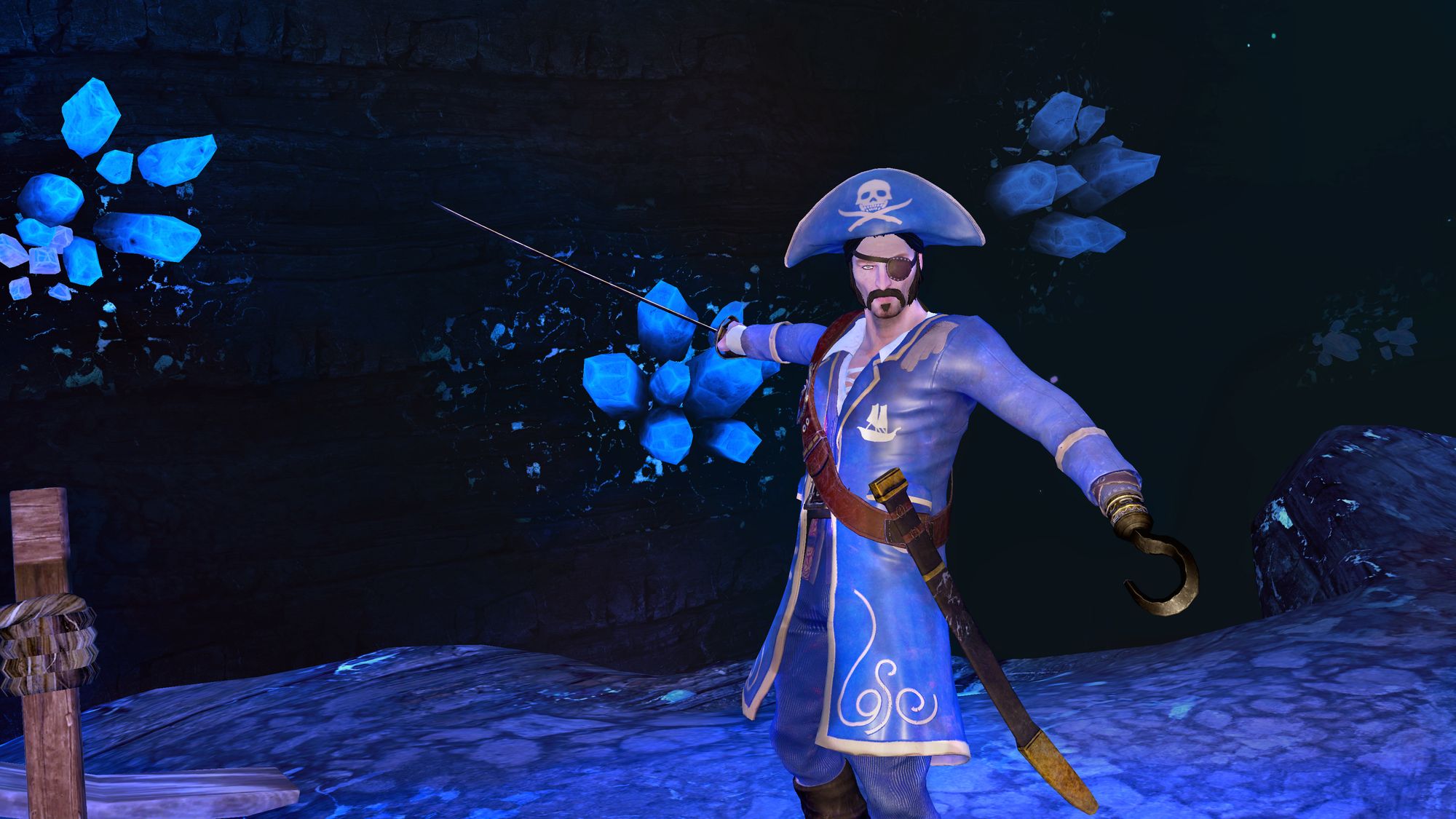
I really don’t want to be so harsh on this game because, on paper, it’s a really good idea. Perhaps it could have leaned on the history aspect and had some extra material about the original game, which would have helped drive that angle further. Some more inspiring art direction would have gone a long way, as well. But as it stands, this is a more modern version of the granddaddy of all adventure games, which is noble. It’s just unfortunate that it’s more like a 2003 version of Colossal Cave Adventure, rather than a 2023 version. Hopefully, this is just a first step towards a successful comeback for the godparents of adventure games.